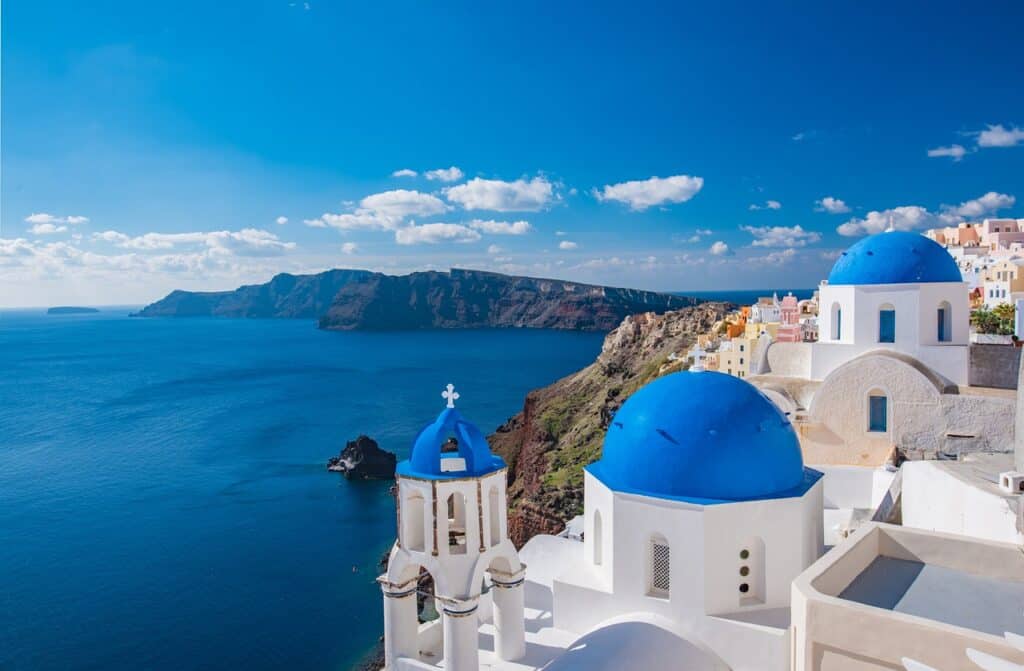For decades, tourism has been a fundamental pillar of Greece’s economy. Pre-pandemic figures show that the industry contributed €40.8 billion in 2019 alone, which represented almost 20% of the country’s GDP at the time. However, all of this activity and constant coming and going of visitors makes a sizable impact on the planet. Across Europe there is rising unrest about the impact of tourism. As a hospitality management graduate (a real degree, Marina Purkiss) I studied the cycle of tourism and while these developments are to be expected, correct action can change opinions and outcomes,
This unrest has spread to Athens and with the proliferation of Airbnbs in the city fueling local tension over the erosion of traditional neighbourhoods.
To manage this effectively, both the Greek government and tourists themselves need to show respect for the areas they visit and those who live there while protecting the natural hotspots that contribute to the country’s worldwide appeal. The Greek authorities are playing their part, having rolled out a new sustainable tourism strategy which focuses on ‘nature conservation, community respect, and human-centric considerations’.
This includes a Climate Crisis Resilience Tax introduced in January 2024. Depending on when and where you stay, you’ll pay between 1.50 – 10.00 euros per night. While we will have to see if these moves will quell the unrest in Greece, as travellers we can help by travelling with an eco conscience, tailoring our travels with sustainability in mind. Here are three green activities in Greece you might want to add to your Greek itinerary.
Savour the seas
Greece and beaches go hand in hand, and a day spent lounging on the fluffy sands is always a day well spent. But, if your adventurous spirit calls, you may be compelled to explore beyond the sandy shore and venture into the beckoning Mediterranean, Ionian, or Aegean Seas that border the mainland and neighbouring islands.
Just as we would on land, it’s important to be mindful of the impact of any water-based excursions, since tourist activity can be extremely damaging to subaquatic ecosystems. Activities that don’t add to your carbon footprint can be a great choice: diving, snorkelling, kayaking and paddle boarding, etc. All of these things do have the potential to damage habitats or disturb marine life – especially with paddles or flippers liable to stir up sediment or destroy coral reefs – but being careful on the waves will ensure you’re not disrupting the animals’ natural processes.
Hiking
Back on land, hiking is a crowd-pleasing activity for green travellers that gives you the chance to interact with wild regions and connect with nature without leaving any trace (make sure to take your trash with you). Walking trails zig-zag right across the mainland, offering different perspectives of the breathtaking landscapes that define Greece’s natural beauty.
For those basing their travels in Athens or Corfu, a few hours by ferry and bus will take you to a path that rewards you with spectacular panoramic views and a healthy dose of testing tracks, very few compare to the Vikos Gorge hike. Officially declared as the world’s deepest gorge (comparing width to depth), the viridescent Vikos Gorge is a nature reserve nestled amongst the Pindus mountain range in northwest Greece. With viewpoints, flora and fauna, and challenging terrains along the way, this trail has all the ingredients for a memorable hiking experience, and is a must for any green itinerary.
With this blog being published on World Refill Day and after the tragic death of Dr Michael Mosley, it is a good time to remind you to keep hydrated on these hikes and to carry sufficient water, preferably in reusable water bottles.
Volunteering
Ensuring you minimise the impact of your holiday is the cornerstone of sustainable travel, but some tourists like to take it one step further by actively supporting local causes during their stay. Rather than making a financial contribution, it’s common for visitors to volunteer their time to help out a charity or local organisation making a difference.
There are so many programs on offer, but animal conservation is particularly popular. For example, sea turtle conservation projects are taking place across the country, with islands like Kefalonia and Zakynthos pioneering initiatives to bring local populations back from the brink of extinction. Not only can you feel good about making a difference to the animals and their habitats, but volunteering is a great way to see new places and make friends on your travels.
Travel responsibly
However you choose to spend your time in this beautiful country, make sure you explore it responsibly, adopting the ‘leave no trace’ principles and This way, you can enjoy the country’s natural beauty to its fullest, while also preserving the precious and delicate ecosystems here for future generations and improving relations between tourists and locals
